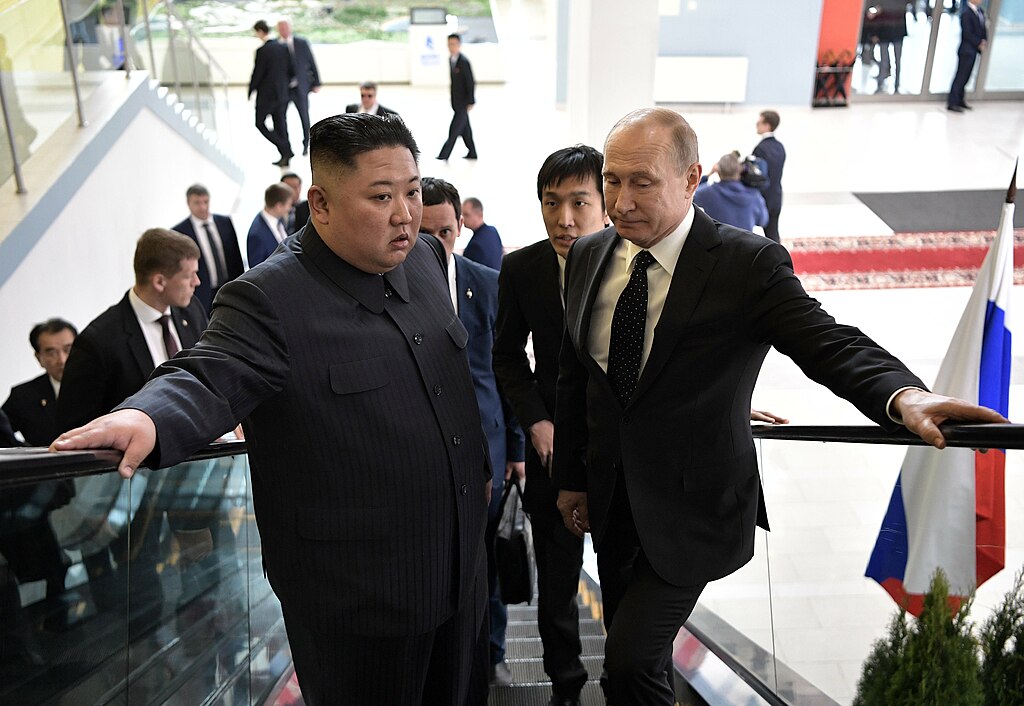The Peninsula
2023 in Review: The War in Ukraine and North Korea

The war in Ukraine directly and indirectly impacted policy and perceptions on and around the Korean Peninsula, starting with Russia’s invasion in early 2022 and continuing apace in 2023. In complex and interconnected ways, the war has affected both Koreas, but in the case of North Korea the trends are not promising.
For its part, North Korea has drawn lessons from both belligerents. Ukraine’s experience – invaded after denuclearizing in exchange for an internationally brokered security guarantee – reaffirmed Pyongyang’s already firm position never to relinquish its nuclear weapons. Russia’s invasion backed by Putin’s nuclear threats may have informed North Korea’s own new nuclear declaratory policy and further emboldened it to develop its missile capabilities. Yet, if Pyongyang privately shudders at the thought of its territorial integrity being violated like Ukraine’s, it officially supports Putin’s revanchist logic about the “historical unity of Russians and Ukrainians,” which aligns with its own revanchist view of South Korea (a view similarly held by South Korea about the North and enshrined in the ROK constitution).
More broadly, Pyongyang and Moscow’s diplomatic and political alignment in the wake of Ukraine, evident in Russia’s (and China’s) continued obstruction of new UN Security Council resolutions against North Korea and a willingness to look the other way on Pyongyang’s ongoing sanctions evasion, culminated in Putin and Kim Jong-un’s September summit. Russia appears willing to openly violate existing sanctions – through different forms of military, technological, and economic cooperation with North Korea – in exchange for North Korea’s provision of large amounts of artillery for its war in Ukraine. Such sanctions were, according to Russian Foreign Minister Sergey Lavrov, “adopted in a completely different geopolitical situation,” that is, before the stark economic, resource, and geopolitical pressures borne of Russia’s war in Ukraine and torpedoed U.S.-Russian relations.
North Korea benefits from Moscow’s assistance and the geopolitical space it provides, both to leverage and balance its position between China and Russia and against the United States. If, following the Hanoi Summit in 2019, Pyongyang was moving away from its post-Cold War effort to normalize relations with Washington, the war in Ukraine and above trends have completed the turn. Given a tighter North Korea-Russia-China triangle, Pyongyang’s incentives to engage Washington are considerably reduced and the bar for returning to such engagement too high for Washington to meet.
Such developments cast serious doubt upon the sustainability and effectiveness of longstanding U.S. policies toward Pyongyang. Meanwhile, Moscow divides U.S. attention and resources by bolstering what the U.S. National Defense Strategy refers to as a “persistent threat” in North Korea; punishes Seoul for supporting Ukraine; and buys critical time on the battlefield while political support for Ukraine wans in Washington and other Western capitals.
Clint Work is a Fellow and Director of Academic Affairs at the Korea Economic Institute of America. The views expressed here are the author’s alone.
Photo from Kremlin.ru, CC BY 4.0 via Wikimedia Commons.
